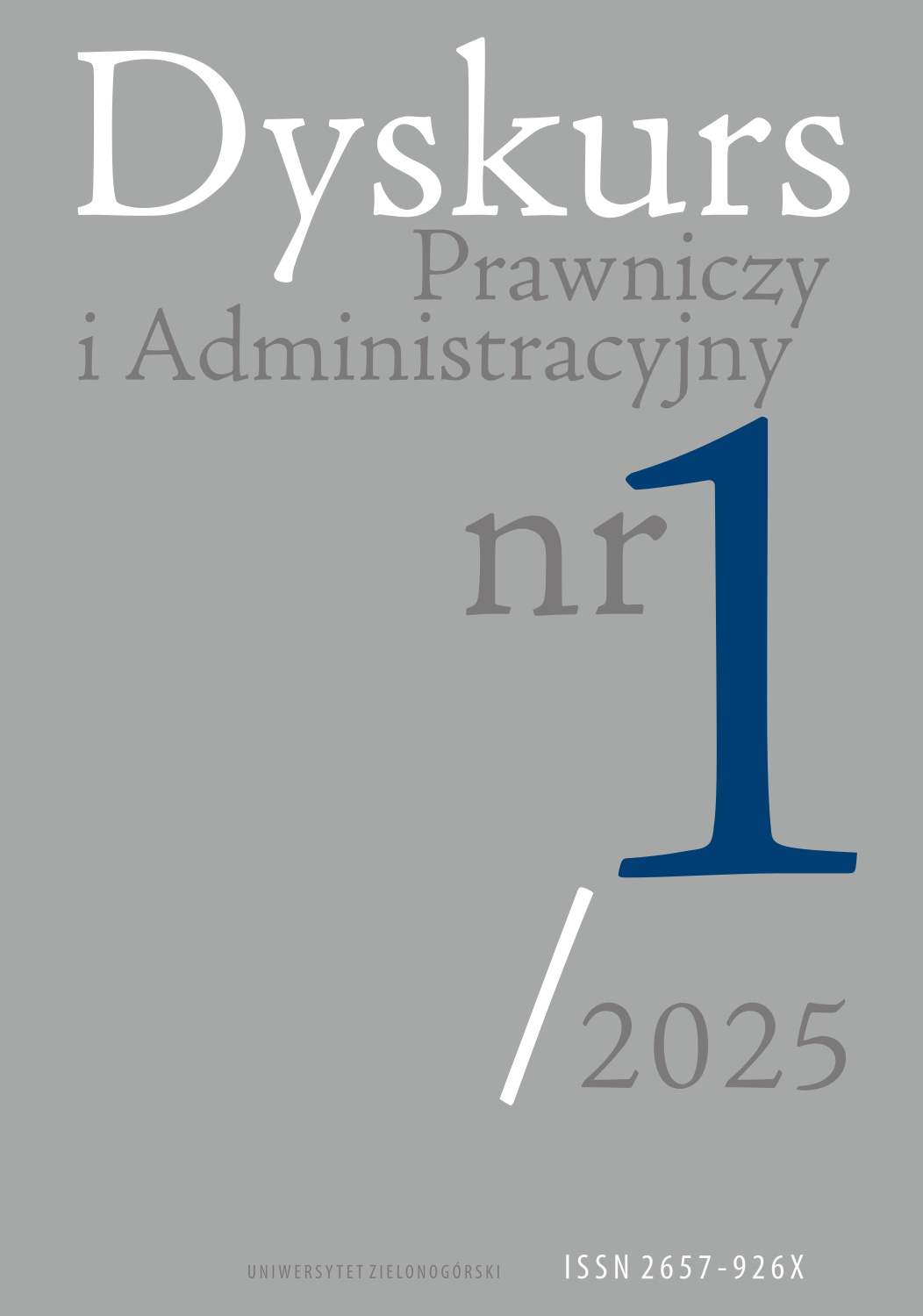O czasopiśmie
Dyskurs Prawniczy i Administracyjny jest periodykiem powstałym z inicjatywy pracowników Instytutu Nauk Prawnych Uniwersytetu Zielonogórskiego. Kolegium Redakcyjne opracowuje obowiązujące wytyczne dotyczące pracy redakcyjnej, podejmuje działania na rzecz podnoszenia jakości naukowej czasopisma oraz wspiera pluralizm i wolność wypowiedzi w płaszczyźnie naukowej. W Dyskursie są publikowane recenzowane materiały o charakterze oryginalnych opracowań naukowych z dziedziny nauk prawnych, przy uwzględnieniu interdyscyplinarnego charakteru czasopisma. Do publikacji są przyjmowane materiały z zakresu nauk prawnych, politologii oraz socjologii prawa. Interdyscyplinarność czasopisma wpływa na wzbogacenie debaty publicznej oraz badań naukowych dotyczących zagadnień z obszaru nauk prawnych prawa publicznego, jak i prawa prywatnego.
W czasopiśmie publikowane są teksty w języku polskim, angielskim, niemieckim, włoskim i francuskim.
Aktualny numer
Pełny numer
Artykuły

Dyskurs Prawniczy i Administracyjny jest recenzowanym naukowym czasopismem prawniczym, w którym są publikowane artykuły z zakresu nauk prawnych, politologii oraz socjologii prawa.




